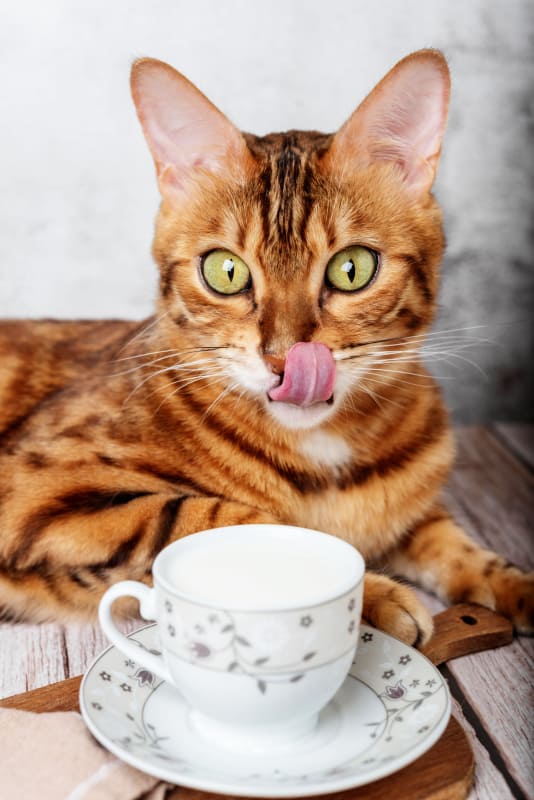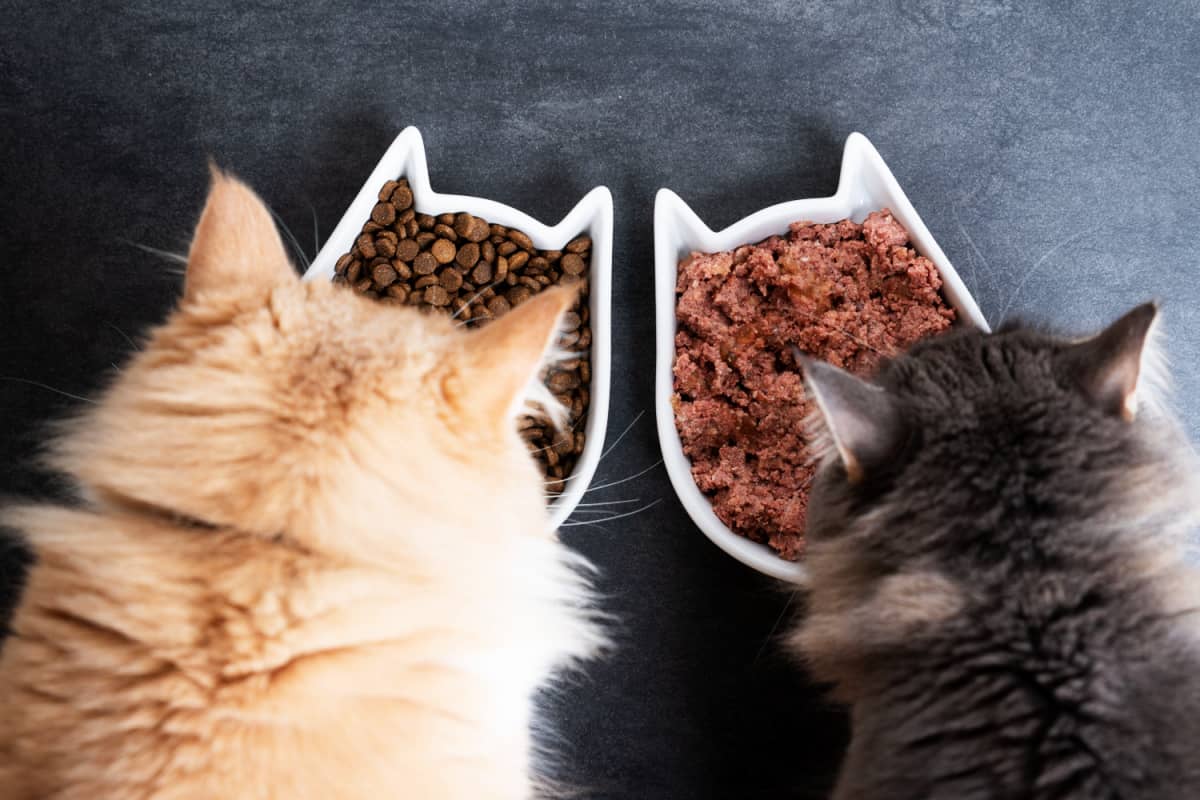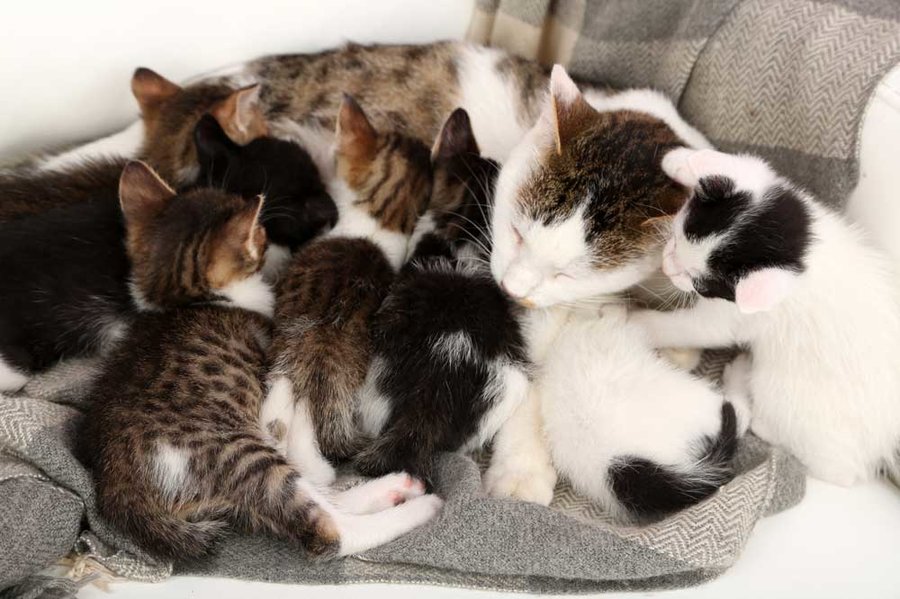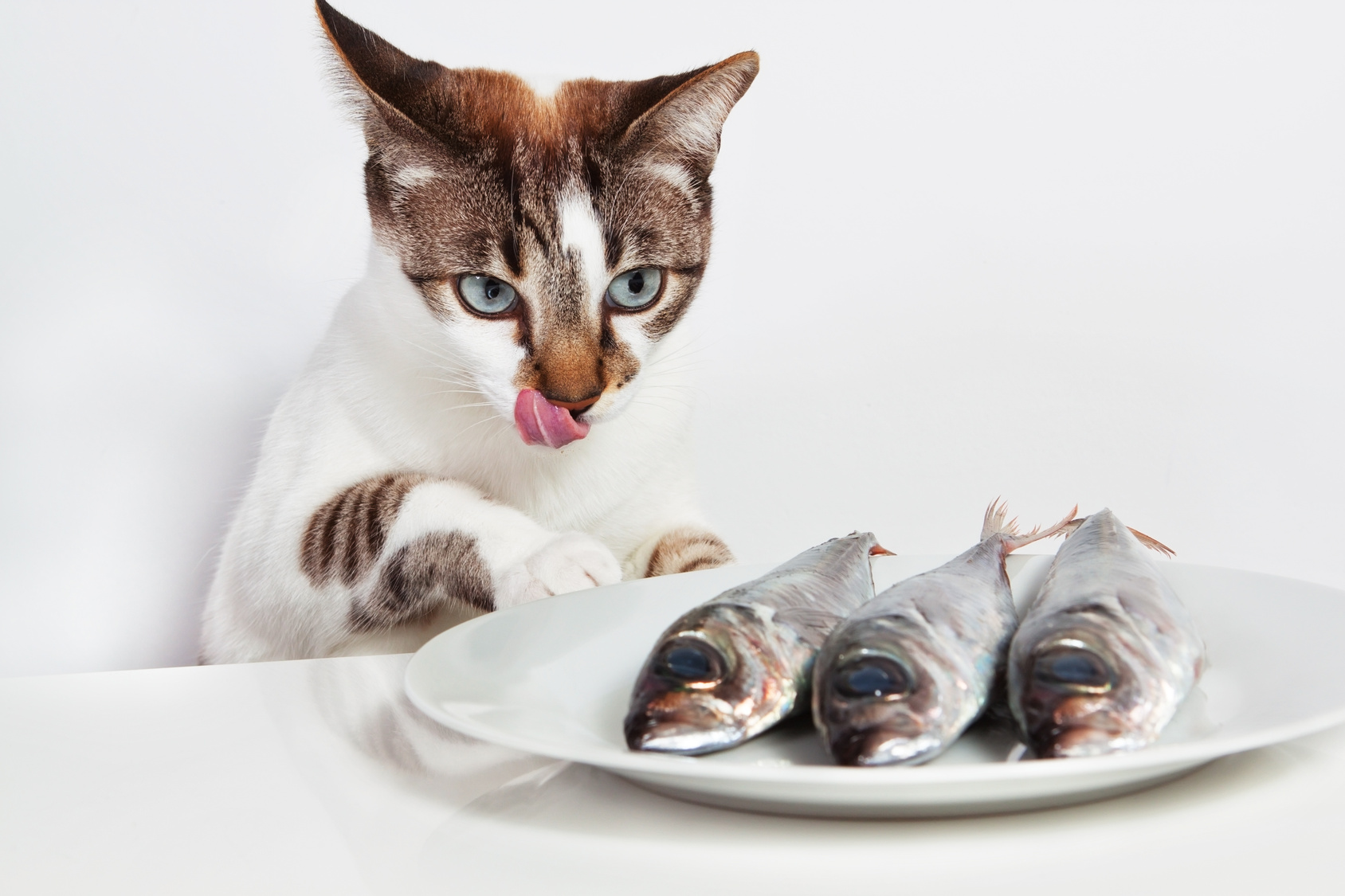In the complex world of cat food and feline nutrition, it can be hard to know what's truly best for your furry friend. Recently, we had the privilege to sit down with the esteemed Pet Nutritionist, Dr. Martha Cline.
We discussed everything from industry standards to supplementing your cat's diet - and much more. If you've ever found yourself puzzled over pet food labels or unsure about supplements, you won't want to miss what Dr. Cline has to say.
This article will dive into our discussion on feline nutrition and how you can optimize your cat's diet.
How Reliable Are The Current Standards In The Pet Food Industry?
We started our talk by discussing current industry standards, as set forth by AAFCO (The Association of American Feed Control Officials). Considering AAFCO feeding trials only cover a few weeks in the animals’ lives, I asked Dr. Cline if she thinks these standards are enough to go by.
“An AAFCO feeding trial is used to determine the nutritional adequacy of a diet. For adult maintenance, a minimum of 8 dogs or cats are used and the test diet must be fed for a minimum of 26 weeks. A veterinarian examines the animals at the beginning of a feed trial and at the end, and various medical data is collected during the trial.”

The Importance Of Lifetime Studies In Pet Nutrition
“It is important to know that your pet’s food is going to be well tolerated by cats or dogs before it is sold on the market. I believe [the AAFCO feeding trials] definitely have value to them because they may pick up on nutrient, digestibility, or palatability issues that would be missed if the diets were simply formulated and sold.”
“A feeding trial does have its limitation, however, and will not guarantee the diet will provide adequate nutrition under all conditions. Pet food can be sold without performing a feeding trial. Diets that are formulated to be complete and balanced will meet the levels specified by AAFCO either based on the recipe or on analytic testing of the finished product. If this is the case, a company should test nutrients after the food was manufactured to ensure that all of the nutrients that looked really good on paper are now actually in the food.”
But what about the long-term effects commercial diets have on a pet’s health? According to Dr. Cline, lifetime studies are few and far between.
“Long-term, prospective studies assessing the impact of nutrition are rare in veterinary medicine. People should understand that doing a lifetime study can be very challenging in terms of the financial aspect and the time commitment.”
Dr. Cline shared two examples of lifetime studies: One is a lifetime study that was done several years ago on Labrador retrievers that were followed for the entirety of their lives. This particular study found that dogs that were kept lean, lived longer and healthier lives compared to overweight dogs.
The Morris Animal Foundation is currently conducting another lifetime study in golden retrievers looking at the effects of nutrition on the incidence of disease in this population of dogs.
Taking Off With AAFCO Feeding Trials
Dr. Cline said that considering the lack of lifetime studies, the AAFCO feeding trials provide us with a good starting point.
“It’s a good system for what we have in place right now. Could we do better? We could always do better. Should a pet food company go beyond what is minimally required of them? Yes."
She remains optimistic about pet food studies, saying:
“What we've learned in the past 50 years about cat and dog nutrition is really significant. It’s improving. Every year new data comes out where we know more and more about their nutrient requirements for health and disease.”
As for the concerns about the long-term effects of these diets on diseases, such as cancer and diabetes, Dr. Cline says we cannot rule that out. However, when her clients suggest that pets are developing more diseases today due to their diets, she often questions back, asking:
“Is it just the fact that our animals are at a higher plane of nutrition than they've ever been before causing them to live longer, and giving them the opportunity to have more diseases that we see in older animals?”

Interpreting Pet Food Packaging: What You Need To Know
I asked Dr. Cline about the various terms one sees on pet food packages. Premium, super-premium, natural, holistic - should any of these affect our decision when buying cat food?
“A lot of the terms on pet food labels or in advertising don’t have any legal definition. For example, premium, super-premium, holistic, and gourmet - none of those have any legal meaning. They’re really just something that can be put on pet food and have no regulatory oversight over them.”
As for the term “natural”, Dr. Cline says this does have a concrete legal meaning, but all it says is that the ingredients originally came from an animal, a plant, or a mined source.
“It doesn't have anything to do with the processing or the way that the animal was raised or the plants are grown. It really doesn't mean much except that it wasn't chemically synthesized.”
Being “natural” does not mean an ingredient is necessarily safer or more wholesome compared to a lab-produced ingredient. Dr. Cline mentions vitamin E as an ingredient that is often synthesized, yet is completely safe and plays an important role in preserving pet food. At the same time, perfectly natural ingredients could potentially be toxic in their own right or contaminated with fungus or bacteria.
SIGN UP FOR THECATSITE'S EMAIL UPDATES >
Supplementing A Cat’s Diet - A Good Idea?
The question of nutritional supplements for cats often comes up in the forums so I asked Dr. Cline for her opinion on the benefits and potential risks of supplementation. Dr. Cline said that her practice deals mostly with nutritional cases, and therefore the supplements she prescribes the most are probiotics and fish oil.
“I use probiotics all the time. I find them to be very helpful in the management of GI disorders. In terms of risks associated with using probiotics, I haven’t seen anything specifically reported in cats."
As for which probiotics to use and which “bacterial formula” is best for cats, Dr. Cline has an interesting prediction.
“There’s a lot of research now looking specifically at the gastrointestinal microbiomes of animals [i.e., the bacteria in the intestines]. The microbiomes of humans, cats, and dogs are all different. It will be interesting to see if we get more veterinary-specific products that are more compatible with the microbiome of cats.”
Concerning fish oil:
“Omega 3 fatty acids have a lot of health benefits for a lot of different disease processes like chronic kidney disease and osteoarthritis."
Dr. Martha Cline, DVM, Diplomate ACVN
She cautions against overdosing since there have been reports of associated clotting issues.
“I don’t recommend really high doses of fish oil in cats because it does have the potential of causing a problem. Again, fish oil is one where you want to follow standard dosing recommendations. My general dosing is 1000mg of fish oil for every 10 lbs, basically 1 standard fish oil capsule per cat. It’s not something where more may be better.”
Dr. Cline concluded by saying that clinical veterinary nutrition has become a leading field.
“When I was in veterinary school, the massive pet food recall due to melamine and cyanuric acid, occurred. The pet food industry and pet owners’ perceptions of the industry have changed drastically since then. There are questions we deal with now that my mentors were not asked commonly before all this happened. We’re seeing some nutritional deficiencies and disorders that we haven’t seen in a really long time because now owners are home preparing food and their diets may not be complete and balanced. It’s a really interesting time for me to be a nutritionist and I hope I can be a resource for pet owners to make good nutritional choices.”
Dr. Martha Cline, DVM, Diplomate ACVN
Feline Nutrition: The Takeaways From Dr. Martha Cline
As we move forward, we should remember Dr. Cline's emphasis on the strides made in veterinary nutrition over the last decades, while acknowledging the areas that need improvement.
It’s clear that pet nutrition, though a complex and dynamic field, has experienced significant advancements, and will continue to evolve to meet the needs of our beloved companions.
This interview serves as a testament to the importance of continued exploration, research, and open conversations about pet nutrition.
SIGN UP FOR THECATSITE'S EMAIL UPDATES >

Dr. Martha Cline is a veterinarian who specializes in pet nutrition. She went to veterinary school at the University of Tennessee College of Veterinary Medicine and finished her internship in small animal medicine at Oradell Animal Hospital before returning to the University of Tennessee, this time for a two-year residency in small animal clinical nutrition. Dr. Cline currently works as a clinical veterinary nutritionist at the Red Bank Veterinary Hospital in Tinton Falls, NJ. Dr. Cline shared a lot of valuable information with us at TCS and you can expect to see her name pop up in more nutrition-related articles right here on TheCatSite.com in the near future!
Note: We may get commissions for purchases made through links on this page.




5 comments on “Cat Food & Feline Nutrition With Pet Nutritionist Dr. Martha Cline”